1. Jackie Robinson
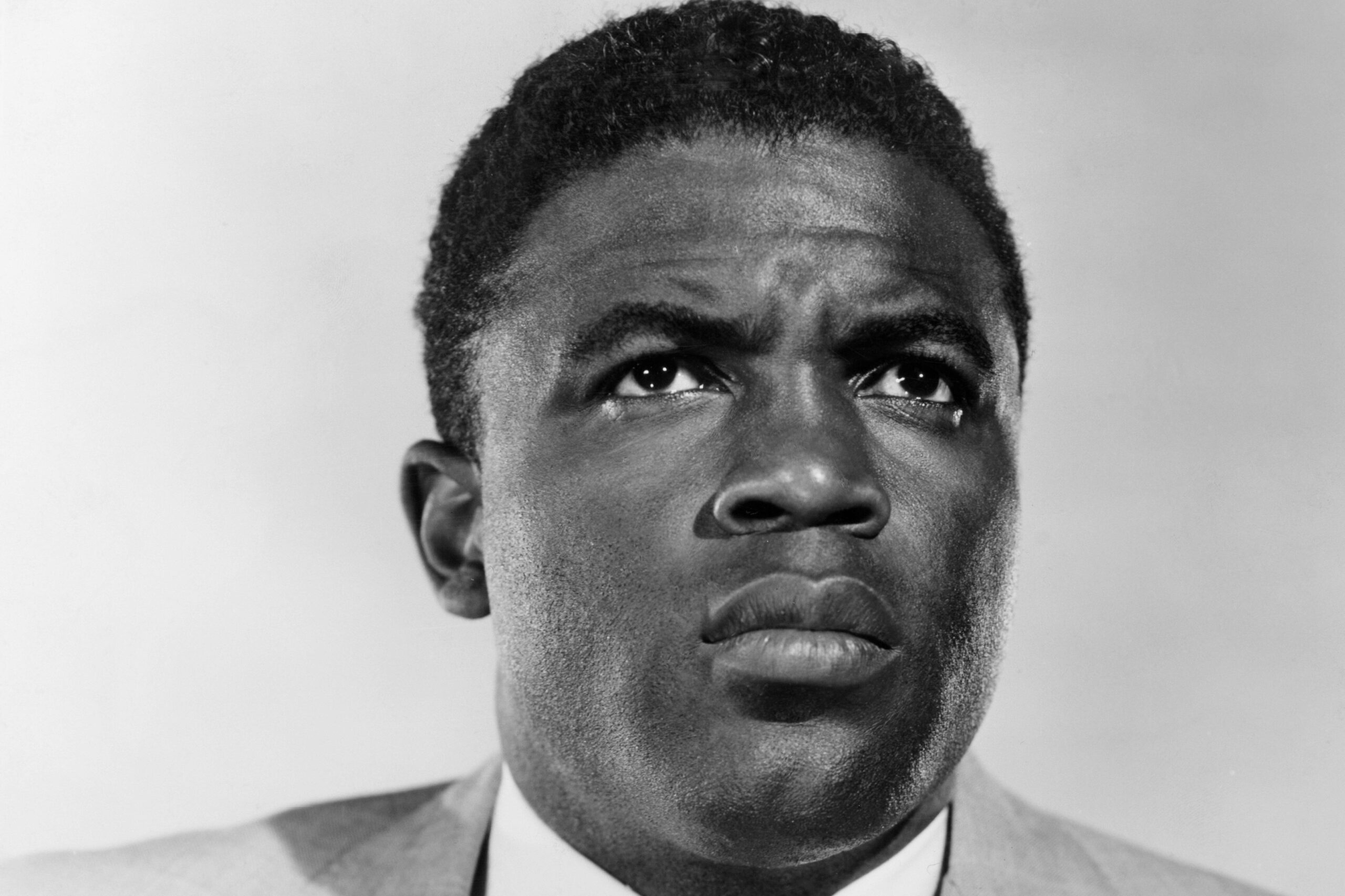
Jackie Robinson’s entry into Major League Baseball in 1947 broke the color barrier in the sport, marking a pivotal moment in American history. Before Robinson, the sport was racially segregated, and black athletes were barred from playing professionally. His courage, talent, and perseverance paved the way for future generations of Black athletes in every sport. Robinson not only excelled on the field—becoming the first African American to play in the MLB—but he also used his platform to push for social change. His batting average of .311 and strong defensive skills made him a standout player, earning him the National League MVP in 1949 says MLB.
Robinson’s impact extended far beyond baseball. He became a symbol of the Civil Rights Movement, showing that equality could be achieved through determination and resilience. His ability to endure racial prejudice without retaliating on the field was groundbreaking. He faced unthinkable challenges, from taunts and threats to constant media scrutiny. Still, Robinson’s legacy transcends baseball. His induction into the Baseball Hall of Fame in 1962 solidified his place in history, and his number 42 has been retired across all MLB teams as a tribute to his unparalleled contribution to the game and society.
2. Serena Williams
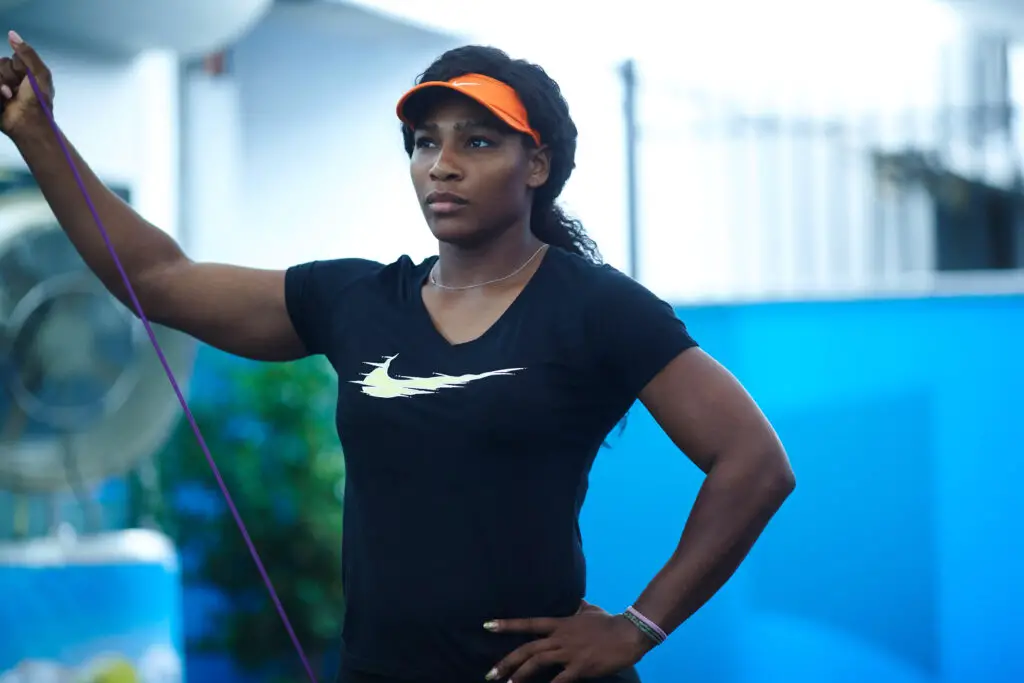
Serena Williams stands as one of the greatest tennis players of all time, with an illustrious career full of record-breaking moments. Her journey from Compton, California, to the world’s top tennis courts is a testament to her extraordinary talent, grit, and relentless work ethic. She has won 23 Grand Slam singles titles, the most by any player in the Open Era, showcasing her dominance in a sport traditionally associated with the elite. Her ability to consistently perform under pressure, especially in major finals, has earned her a legendary status in tennis. Beyond her powerful serves and unparalleled athleticism, Serena has been a vocal advocate for gender equality and racial justice explains the New York Times.
Serena’s influence isn’t limited to her achievements on the court; she’s changed the way the world views female athletes. Her body-positive approach to fitness, her unapologetic attitude, and her resilience in the face of criticism have made her a role model for many young Black girls. Williams has faced intense scrutiny throughout her career, from racist and sexist comments to unfair judgments on her appearance. Yet, she continues to break barriers, advocating for diversity and inclusion both within tennis and beyond. Her legacy extends far beyond sports, as she’s become a cultural icon, inspiring millions to chase their dreams, regardless of obstacles.
3. Muhammad Ali
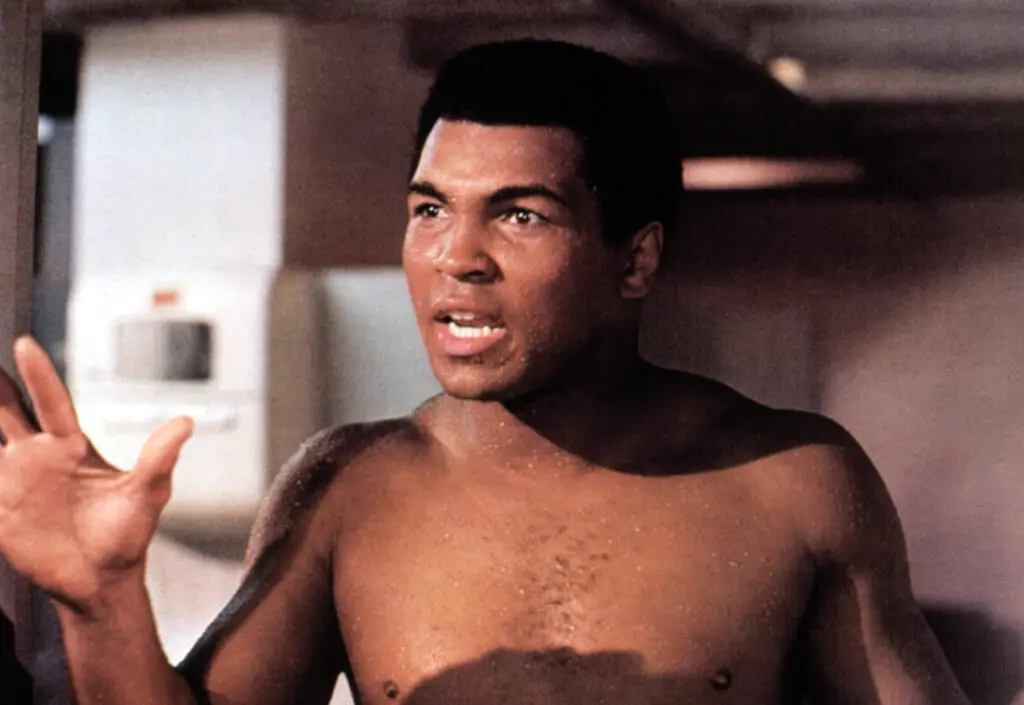
Muhammad Ali’s impact goes far beyond his legendary boxing career. With his unmatched skill in the ring and his unwavering confidence, Ali redefined what it meant to be an athlete and a public figure. His fight against Sonny Liston for the World Heavyweight Championship in 1964 thrust him into the spotlight, but it was his bold personality, brimming with charisma and wit, that made him a household name. Ali’s quick footwork and lightning-fast punches made him a nearly unbeatable force, winning three world heavyweight titles and becoming the face of boxing. However, his greatness wasn’t just measured by his athleticism; his ability to inspire and challenge the status quo made him a true icon says AP News.
Beyond boxing, Ali was a fierce advocate for racial justice and human rights. His refusal to fight in the Vietnam War based on his religious beliefs and opposition to the draft made him a symbol of resistance and defiance. He faced legal and financial setbacks as a result, yet his resolve never wavered. Throughout his life, Ali used his platform to fight for racial equality and uplift the Black community. His activism, combined with his incredible boxing feats, made him one of the most influential athletes in history. Ali’s legacy is a powerful reminder of how sports can be a vehicle for social change and personal conviction.
4. Michael Jordan
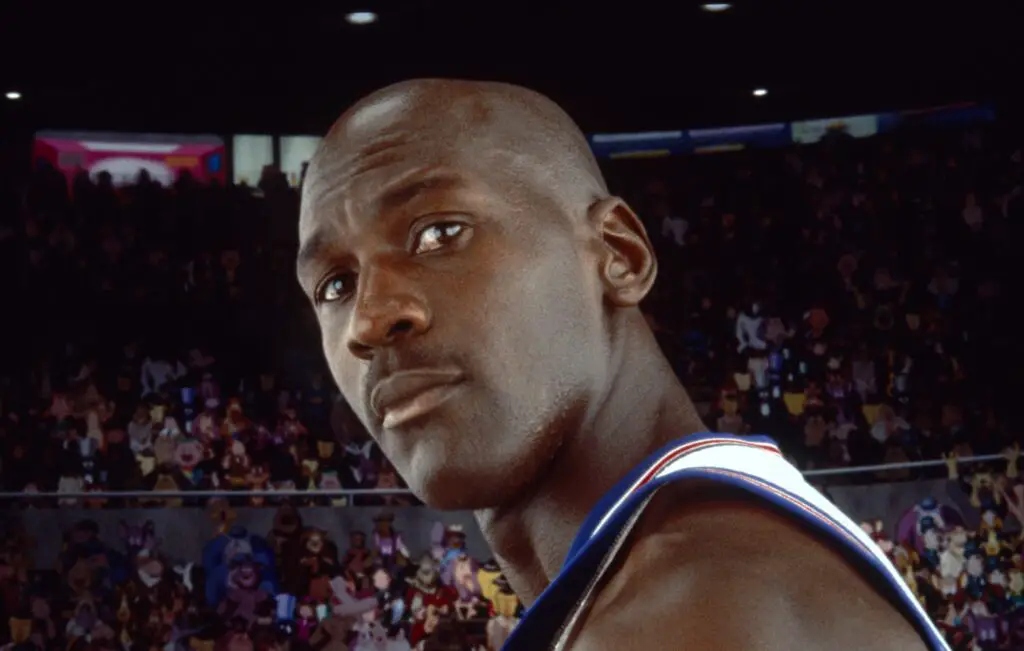
When you think of basketball, Michael Jordan is likely the first name that comes to mind, and for good reason. Widely regarded as the greatest basketball player of all time, Jordan’s talent on the court is unmatched. His competitive drive, combined with his unmatched skills, earned him six NBA championships and five MVP awards says Essentially Sports. His time with the Chicago Bulls, particularly during their two three-peats in the ’90s, cemented his status as a legend. Jordan’s Air Jordan brand revolutionized the sneaker industry, and his commercials became iconic in their own right. The “Flu Game,” where he led the Bulls to victory despite being seriously ill, is just one example of his willpower and determination.
Off the court, Jordan has transcended the role of athlete to become a global cultural icon. His influence is seen in everything from fashion to philanthropy. His investment in the Charlotte Hornets and his status as the first Black majority owner of an NBA team has made him a trailblazer in business. Jordan has also used his platform to address social issues, including racial equality and police violence. He became an outspoken voice after the shooting of Michael Brown in 2014, pledging to donate millions to help fight systemic racism. His influence is still felt across sports and culture, making him one of the most powerful figures in history.
5. LeBron James

LeBron James is a force both on and off the basketball court, and his impact extends far beyond his incredible career. With four NBA championships, two Olympic gold medals, and countless accolades, LeBron has established himself as one of the greatest athletes in history. Known for his versatility, basketball IQ, and leadership, he has dominated the NBA for nearly two decades. His longevity and ability to maintain an elite level of play into his late 30s is a testament to his physical conditioning and commitment to the game. Beyond basketball, LeBron is an advocate for education, creating the “I PROMISE” school for at-risk children in his hometown of Akron, Ohio.
LeBron’s influence goes beyond philanthropy and sports. He has used his platform to speak out on issues like police brutality, racial inequality, and the importance of voting. His open support for Black Lives Matter and other social justice movements has solidified his role as an activist-athlete. LeBron’s public stance on political issues has made him a target for criticism, but he remains steadfast in his belief that athletes have a responsibility to speak out for change. His business ventures, including his production company and media platform, continue to break new ground, making him a cultural icon as much as a basketball legend.
6. Wilma Rudolph
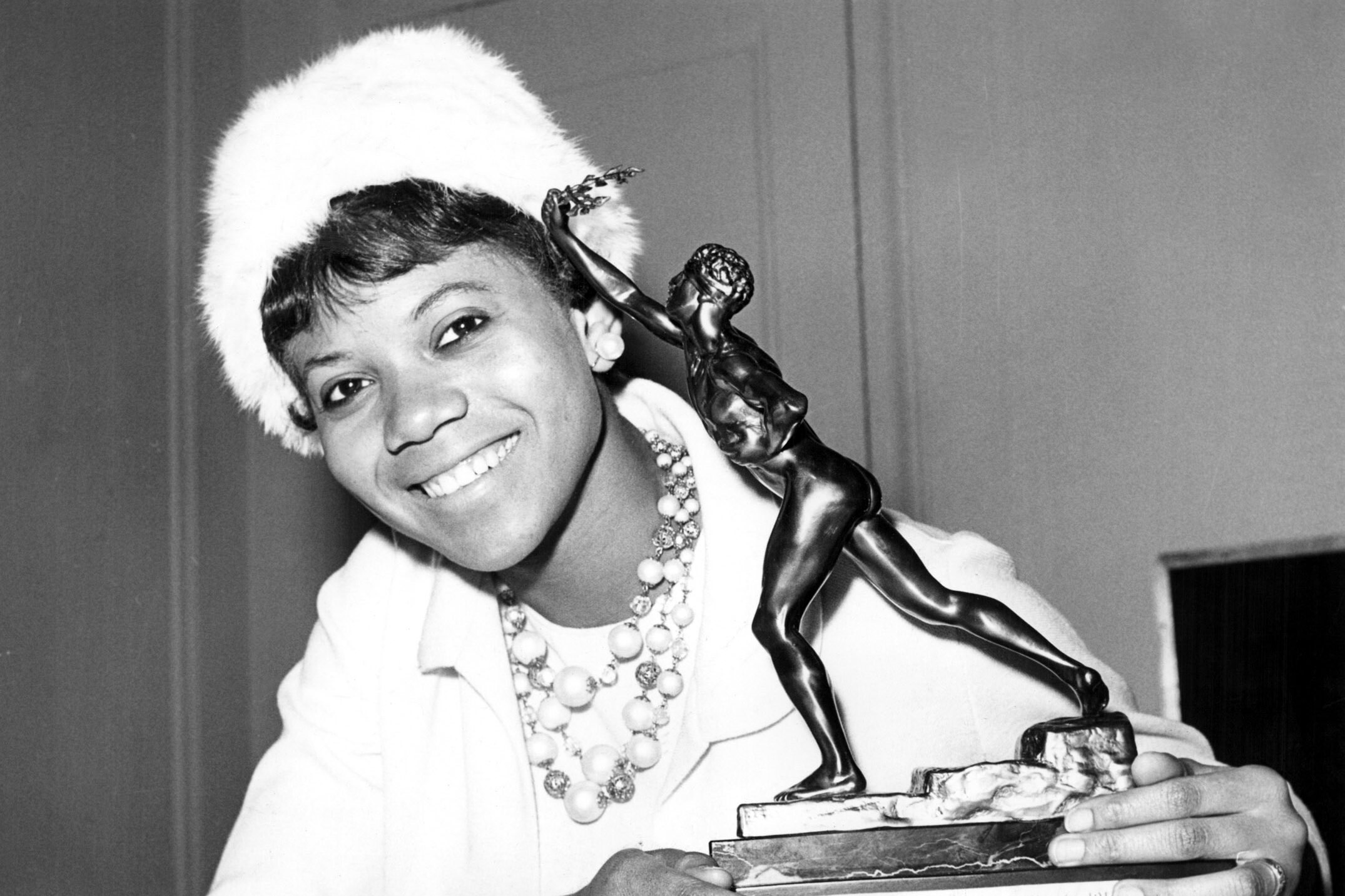
Wilma Rudolph’s journey to becoming the fastest woman in the world is one of sheer determination and resilience. Growing up in the segregated South, Rudolph faced numerous challenges, from poverty to health issues, including polio. Despite these obstacles, she went on to win three Olympic gold medals in 1960, becoming the first American woman to do so in a single Olympiad. Her victory in Rome was a historic moment, not just for women’s athletics but for the entire Black community. Rudolph’s win made her a global symbol of empowerment, proving that anyone, no matter their background, could achieve greatness.
Her success transcended athletics, making her a trailblazer for women and African Americans in sports. Rudolph’s Olympic victories were a symbol of racial pride and a turning point for Black women in sports. Her strength and grace inspired countless young girls, especially Black girls, to pursue their dreams. After retiring from competitive athletics, she continued to advocate for civil rights and education. Her legacy remains a beacon of hope and a reminder that the impossible can become possible with perseverance. Wilma Rudolph is an enduring symbol of the power of sports to break barriers.
7. Tommie Smith
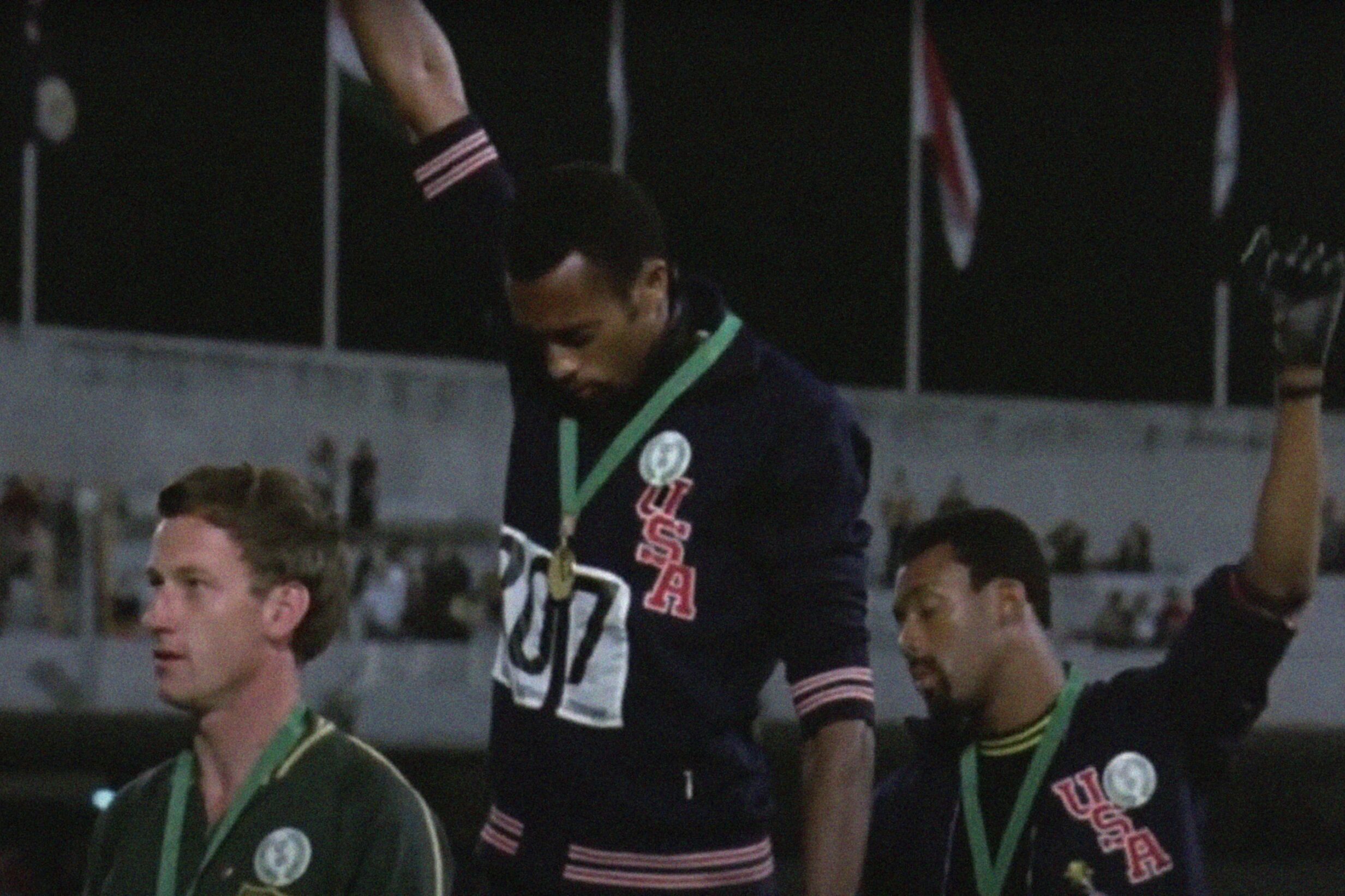
Tommie Smith is best known for his powerful and iconic protest at the 1968 Olympics, but his athletic prowess alone makes him a figure of monumental importance in history. At the Mexico City Olympics, Smith set a world record in the 200-meter dash and won the gold medal, but it was his raised fist on the podium that has immortalized him. His gesture, along with that of fellow athlete John Carlos, was a silent but powerful protest against racial injustice and inequality in America. The raised fist became a global symbol of resistance and solidarity with the Civil Rights Movement.
Smith’s decision to protest at the Olympics came at great personal cost, including backlash and threats. But his commitment to standing up for Black rights and dignity proved stronger than the pressure to remain silent. Beyond his Olympic success, Smith has continued to advocate for social justice throughout his life. He’s used his platform to support various causes, including education and racial equality. Smith’s courage to use his athletic achievements as a platform for change solidified his place as one of the most influential Black athletes in history. His legacy is a testament to the power of protest and the importance of standing up for what is right.
8. Jesse Owens
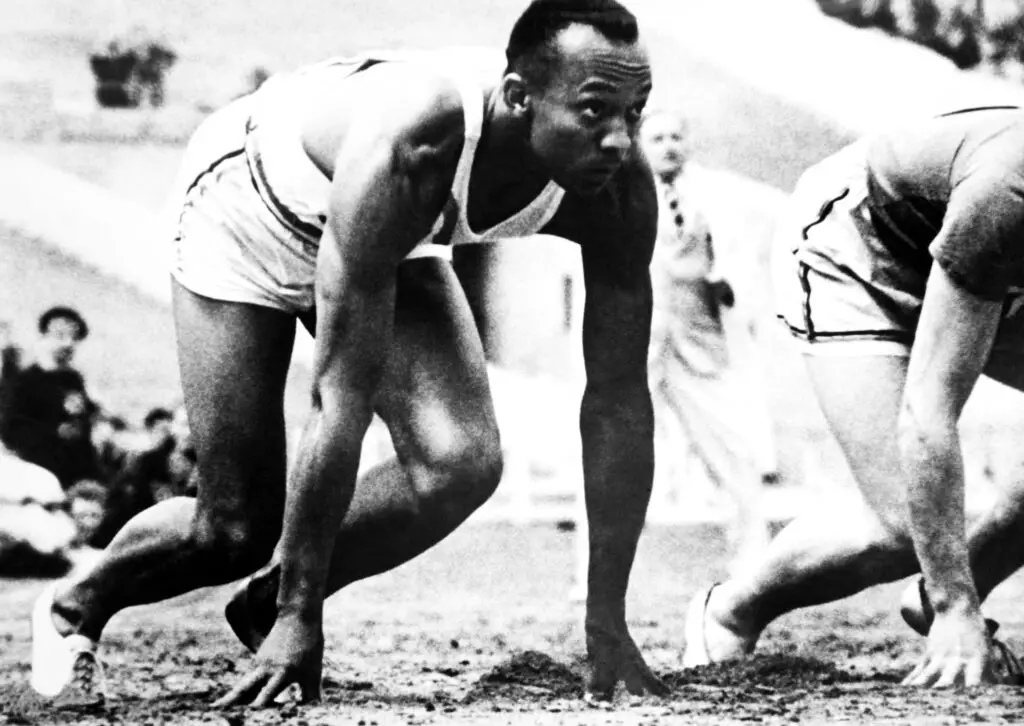
Jesse Owens is a name synonymous with triumph over adversity. In 1936, Owens stunned the world at the Berlin Olympics, winning four gold medals in front of Adolf Hitler and the Nazi regime, which had hoped to showcase Aryan superiority. His victories shattered racial stereotypes and offered a powerful statement against racial discrimination at a time when segregation was rampant in the United States. Owens’ victory in the 100m, 200m, long jump, and 4x100m relay made him an international hero and a symbol of resistance against tyranny and racism.
Owens faced enormous challenges both in his personal life and within the political climate of the time. As an African American in a deeply segregated America, he had to fight against both institutional racism and discrimination. Despite the immense pressure and adversity, Owens’ achievements on the track provided hope and inspiration for millions of Black Americans. After his Olympic success, Owens continued to speak out against inequality, and his legacy as a pioneer for Black athletes is felt to this day. His performance at the 1936 Olympics was not just a victory for him, but for the entire African American community and the fight for civil rights.
9. Althea Gibson
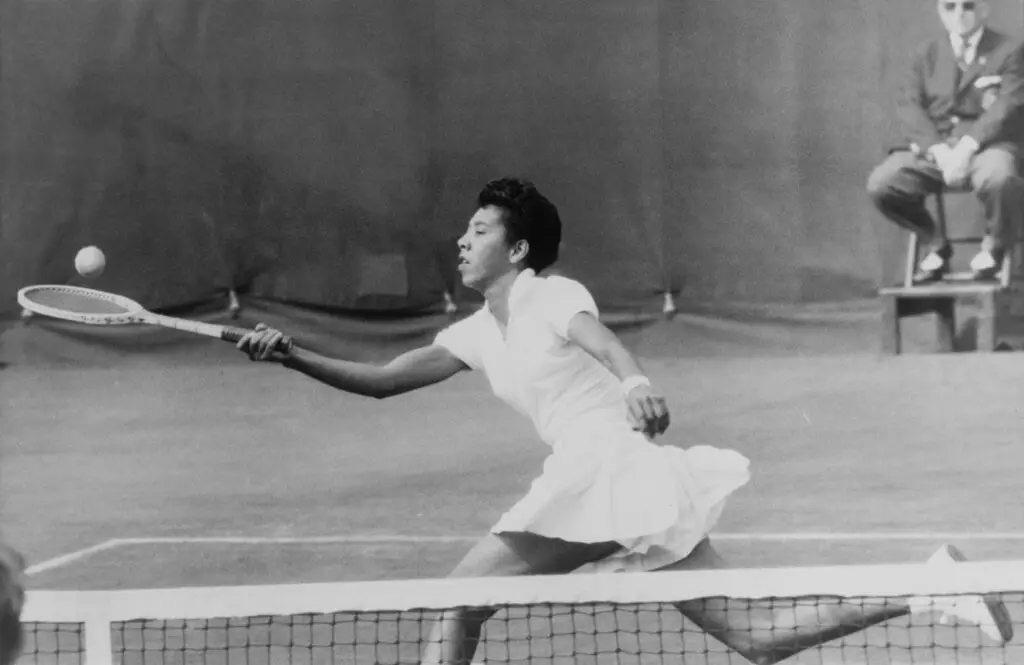
Althea Gibson broke through the racial barriers in tennis and became the first African American to win a Grand Slam title. Her victory at the French Open in 1956 was a historic moment, as it marked the first time a Black athlete had triumphed at a major international tennis competition. Gibson’s success continued with her wins at Wimbledon and the U.S. Nationals, making her a dominant figure in the sport. Her athleticism, composure, and determination challenged the racially segregated world of tennis, and she paved the way for future Black athletes in the sport.
Gibson faced immense challenges, including hostility from both white and Black communities. She had to fight not only against racial barriers but also against gender expectations in a sport largely reserved for white, upper-class women. Despite these challenges, she maintained her dignity and became an ambassador for the sport. Gibson’s achievements were groundbreaking, but her role in advocating for racial equality was just as important. She used her fame to speak out against racism and inspire other African Americans to pursue sports professionally. Althea Gibson’s legacy is a shining example of the power of perseverance and breaking barriers in the face of adversity.
10. Carl Lewis
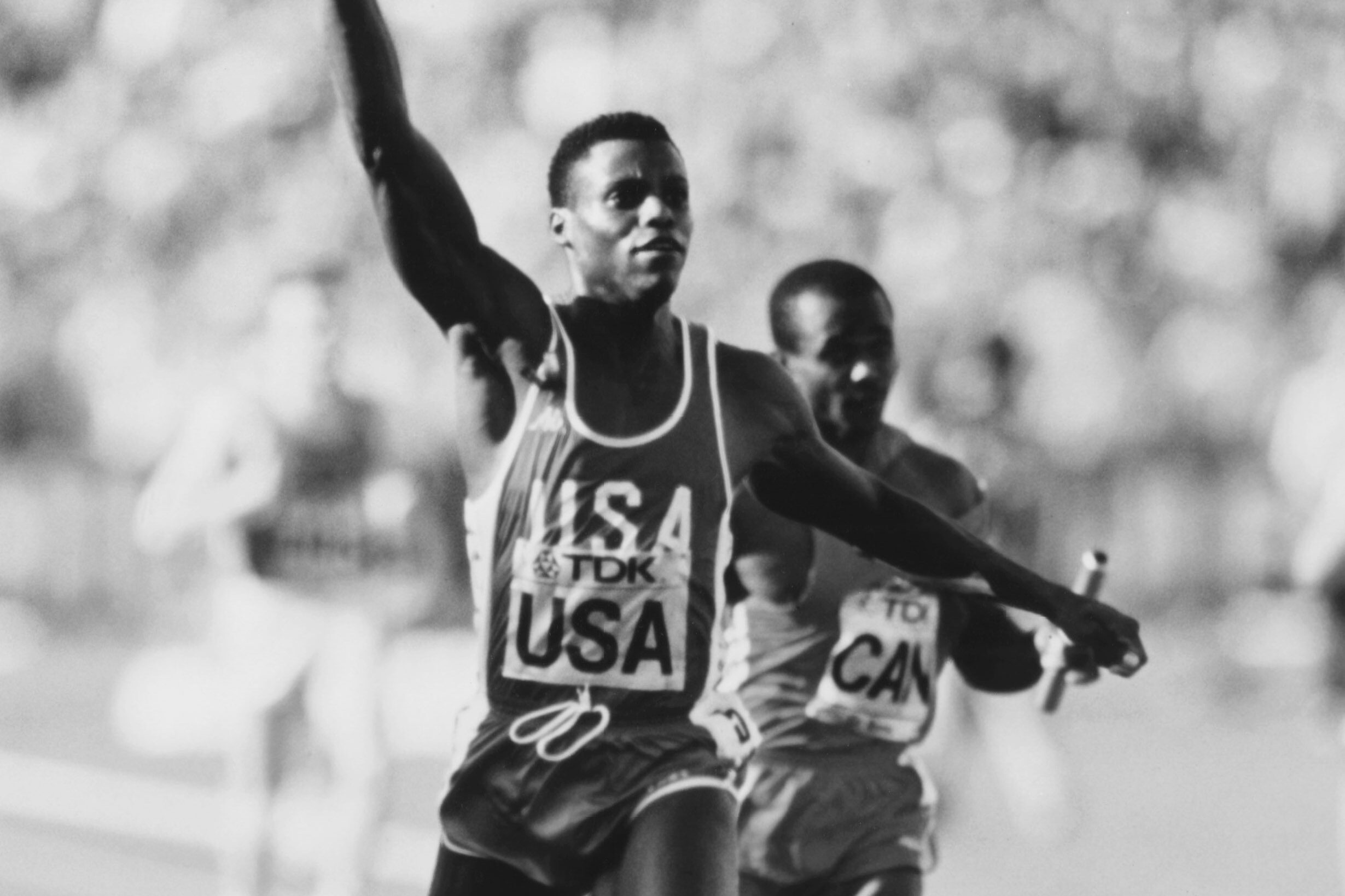
Carl Lewis is often considered one of the greatest track and field athletes of all time. His career spanned over a decade, during which he won nine Olympic gold medals and 10 World Championship titles. Known for his versatility in both the long jump and sprints, Lewis became a dominant figure in athletics, captivating audiences with his speed and power. He even managed to replicate the success of his childhood hero, Jesse Owens, by winning gold at the same Olympic events. His dominance at the 1984 and 1988 Olympics helped solidify his legacy as one of the sport’s all-time greats.
Beyond his athletic achievements, Lewis became an advocate for equality and social change. He used his platform to speak out about issues like racism and inequality, becoming one of the most vocal athletes of his generation. Carl Lewis didn’t just compete for the thrill of victory but also for the opportunity to push for a better world. His involvement in charitable causes, especially related to underprivileged youth, further cemented his role as a public figure committed to social justice. Today, his name is synonymous with excellence in track and field, and his legacy continues to inspire the next generation of athletes to strive for greatness both in and out of the arena.
11. Florence Griffith Joyner
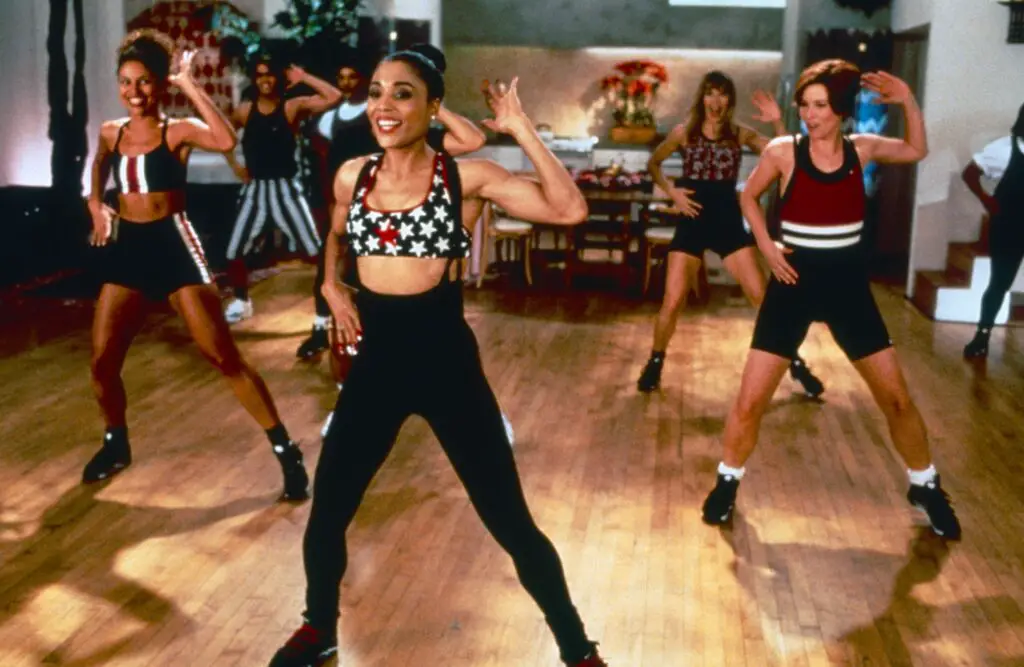
Florence Griffith Joyner, also known as “Flo Jo,” is widely regarded as one of the greatest sprinters of all time. Her career, which blossomed in the late ’80s and early ’90s, was marked by her unique combination of speed, style, and flair. Griffith Joyner set world records in both the 100 meters and 200 meters that still stand today, and she won three gold medals and one silver at the 1988 Seoul Olympics. Her aerodynamic style and trademark one-legged racing suits made her a memorable figure on the track. Flo Jo’s performances at the Olympics helped her earn the title of “fastest woman of all time.”
Her legacy goes beyond her world-class sprinting. Griffith Joyner’s success was not only about her athleticism but also about breaking barriers for women in track and field. As a Black woman, she challenged stereotypes about what female athletes could achieve, both in terms of performance and appearance. She used her platform to encourage young women of color to pursue athletics, proving that determination and individuality could lead to greatness. Beyond her athletic career, Flo Jo was a successful businesswoman and an advocate for health and fitness, continuing to inspire others until her untimely death in 1998.
12. Kobe Bryant
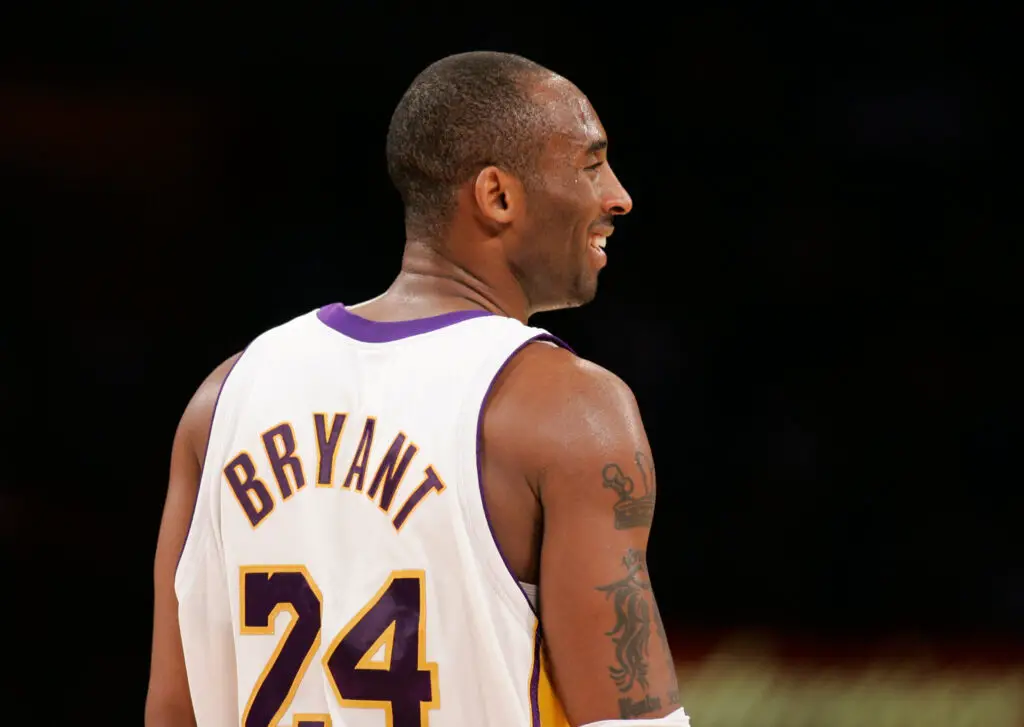
Kobe Bryant’s legendary career in the NBA made him an icon not just in basketball but in the global sports world. Over 20 seasons with the Los Angeles Lakers, Bryant earned five NBA championships, two Olympic gold medals, and countless accolades. His work ethic, nicknamed the “Mamba Mentality,” became a symbol of excellence and determination. Bryant was known for his unyielding drive to be the best, which led him to achieve some of the most remarkable feats in NBA history, including scoring 81 points in a single game.
Off the court, Bryant was equally influential. His transition from basketball to storytelling led to the creation of his Academy Award-winning short film, Dear Basketball. He became a prominent voice in the entertainment industry, working on projects that ranged from documentaries to children’s books. Bryant also gave back to the community, focusing on youth development and education. His untimely passing in 2020 shocked the world, but his legacy lives on in the countless lives he inspired through his athleticism, storytelling, and philanthropy.
13. Simone Biles
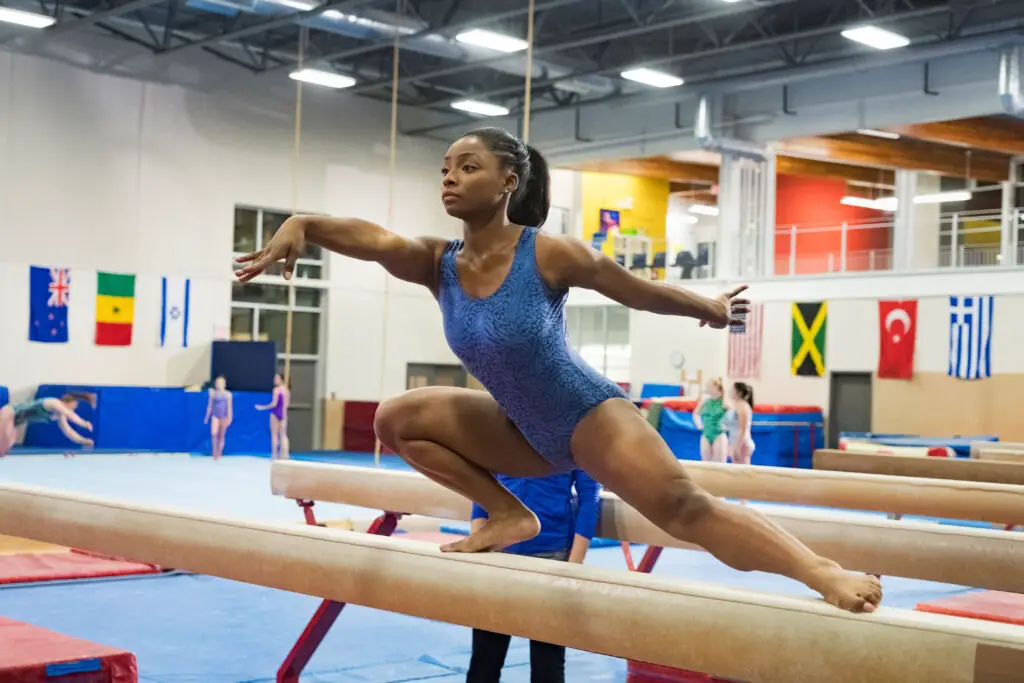
Simone Biles is a gymnast whose accomplishments have redefined what is possible in the sport. With a total of 7 Olympic medals, including four golds, Biles is considered the greatest gymnast of all time. Her incredible ability to perform moves no one else could replicate, such as the “Biles” vault, pushed the boundaries of gymnastics and inspired the world. Biles’ achievements at the 2016 and 2020 Olympics have been historic, and she has earned praise for her remarkable physical strength and mental resilience.
Biles’ courage to speak openly about her mental health challenges during the 2020 Tokyo Olympics made her an advocate for athlete well-being and mental health. By stepping back from some events to focus on her health, Biles showed that it’s okay to prioritize mental health over competition. Her bravery has opened a larger conversation about the pressures athletes face, especially young women in demanding sports. Simone Biles continues to be a trailblazer, not just for Black athletes, but for anyone who strives to be the best version of themselves both inside and outside the gym.
